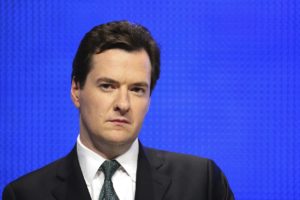
Chancellor of the Exchequer George Osborne (Photo via Hounslow Chamber)
Once free of European Union strictures following its exit from the EU, European finance ministers and financial experts have expressed concern that Brexit could prompt a “race to the bottom” on tax policy, with the UK joining its Caribbean territories as a tax haven type of economy.
Finance minister, Chancellor of the Exchequer George Osborne, announced that Britain would slash its corporate tax rates to one of the lowest of any major economy, in a bid to avoid what he called a “DIY recession” after Britain voted to leave the European Union, the International Consortium of Investigative Journalists reported.
The tax rate would be cut from 20 percent to less than 15 percent by 2020 in a bid to attract continued international investment after the United Kingdom’s exit from the EU.
According to Reuters, the Organization for Economic Co-operation and Development head of tax, Pascal Saint-Amans, warned in a memo written around the time of the Brexit vote that “the negative impact of the Brexit on UK competitiveness may push the UK to be even more aggressive in its tax offer” and that “a further step in that direction would really turn the UK into a tax haven type of economy.”
Even before the vote, Britain was in the process of lowering the corporate tax rate from 20 percent to 17 percent to make itself a more attractive destination for multinational corporate headquarters. The still lower rate announced by Osborne is a sure sign that the UK’s exit from the EU will redouble its resolve to maintain London’s status as Europe’s premier financial center.
“The UK had been fairly aggressive in going after U.S. companies like Starbucks and Google over their tax bills. I think they will be much more friendly to them now,” said Gary Hufbauer, a senior fellow at the Peterson Institute for International Economics.
Experts have long suspected that a British exit could lead to the adoption of tax haven-like policies beyond lower corporate tax rates, particularly in the financial services industry, in a bid to prop up the country’s finances in the wake of a potential post-Brexit economic slump.
Read more here.


